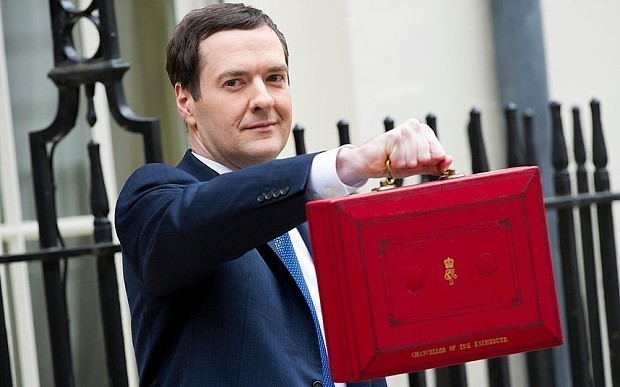If you’re a landlord and own a property or properties in your own name then you are about to get hit by a double whammy of new tax and legislation.
The new ban on tenancy fees written by a government seemingly unaware of the consequences of it’s actions comes into force on 1st June 2019. The only outcome will be that all tenants pay more so that landlords and agents can cover potential losses from the bad ones.However, I digress, you can read more about that subject here

George Osborne dropped his property bombshell on private landlords in the 2015 budget
By many estimates Section 24 means that more than half of all residential landlords in the U.K. will face ever growing tax requirements as they are taxed on turnover rather than profit.Recently the government enforced a new stealth tax of sorts, enforcing company pension contributions then sat by the sidelines wide eyed with disbelief as companies already close to the edge with regard to their pension schemes tumbled before them…Carillion being the most publicised example.
It appears they’re making the same mistakes again, this time with private landlords and the new taxes, it will send many under and push many others to giving up thus reducing the available housing stock in the country.Many landlords will even be pushed into operating at a loss.
So what is Section 24 AKA the tenant tax?
Landlords were always able to claim full tax relief on their mortgage interest repayments.However, in the 2015 budget George Osborne announced a tax change which removed the ability for landlords to deduct their mortgage interest from their rental income before calculating the tax bill.Tax relief is down to a basic rate, a maximum of 20% from 45%.If you’re a landlord that’s a higher rate taxpayer already this will affect you greatly.If you’re a landlord that’s a basic rate taxpayer this could push you into the higher bracket and make things harder for you.April 6 2017 – 75% of mortgage interest has tax relief.April 6 2018 – 50% of mortgage interest has tax reliefApril 6 2019 – 25% of mortgage interest has tax reliefApril 6 2020 – Tax relief for landlords is eliminated*The basic rate of tax is applied to the remaining percent of each of the above linesThe Telegraph have created a handy online calculator for you to use if you’re a landlord which you can get to by clicking hereDue to these changes landlords who have buy-to-let mortgage in the 40 percent to 45 percent tax brackets will have to pay more in taxes while landlords who are in the 20 percent tax bracket may have to pay more if their rental plus earned/other income is more than £45,000.
As a landlord what can you do?
Not much actually, if you’re a tax adviser and can offer more insight on this then please contact me or comment below and let us know if you can contribute.There are some options, all with their downsides, the major one being to transfer the assets to a Ltd company.However, regardless of how you set this up, at the point of asset transfer from your person to your company you will have to pay the taxes due as if the property was sold at a reasonable value, you cannot just gift an asset to another entity to avoid tax charges.You can see tax advisers who could maybe at a stretch get you into an elongated pension scheme or Enterprise Investment Scheme but then your money would be tied up and out of your control for long periods and you would have to be eligible and the right age anyway (for the pension option that is).It is the opinion of this writer that these are far too messy and you should control your own wealth, every time a government fails anywhere in the world what’s the first thing they raid?Peoples pensions and if that fails they go after the savings.No thanks!*I am not a qualified financial adviser this is an opinion piece
There is one route which would negate this
Converting the property into a commercial unit would mean that this doesn’t apply as it’s a tax on residential landlords.Given that the direction in the market is currently the other way due to many white collar workers being more flexible than ever due to the internet (I’m writing this from home at 23:06 on a Monday!) the only realistic route for most would be using the property as a holiday let, a serviced accommodation unit – an AirBnB.You would need to apply for a change of use from your local council and go through a few hurdles as well as speaking to a specialist property tax adviser to see if this is compliant for you in your situation…And you’d need to be in an area where the demand is high and the supply low for Serviced Accommodation.If this interests you we offer a guaranteed rental scheme that you can apply for by clicking here whereby we rent the property off you, guarantee the rent and run your property as a Serviced Accommodation unit, paying maintenance and charging you no fees.Again, I must reiterate that only a tax adviser can give you full and proper advice on this.If you’ve been harmed by Section 24 comment below and click the box above to get a free, no obligation offer on your portfolio today.
Leave a Reply